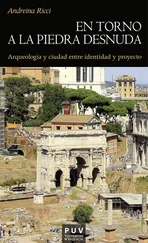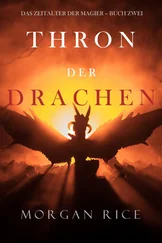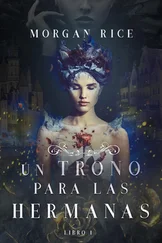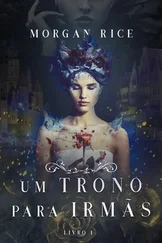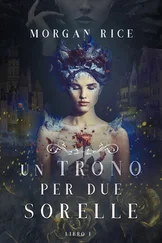"I did not imagine," I say to Will, as I look round this beautiful room, "that the Viscomte was a person of such exquisite taste."
Will looks embarrassed. "Me," he says, "I liked all your scarlet and pink, Sir Robert."
I laugh. We go on into the Dining Room, scene of my candlelit suppers with Celia. My oak dining table is still in place, but the walls have been panelled and the ceiling carved and embossed and painted yellow and blue. It reminds me of a state room, forbidding almost in its formality, and again I remark to Will that the picture of the Viscomte I put together from his letters does not match that which I am forming of him now.
"Well," mumbles Will, "it probably would not, Sir, because in a letter you cannot tell all there is. You have to leave out a great deal, owing to briefness or lack of words."
"True, Will," I reply, "but you led me to believe he did not really care about the house, and in this I see that you were mistaken, for he has furnished it very finely."
Will shrugs his shoulders, upon which hangs a new rust-coloured coat. "He does not come here any more," he says, "and I hope he will not."
"Then what is to become of all these furnishings?"
"I do not know, Sir Robert."
"They are to lie shrouded in dust sheets for all time?"
"I cannot say."
"What, Will?"
"I cannot say whether they will be shrouded for all time."
"What were the orders given?"
"Beg pardon, Sir?"
"What orders did the Viscomte give regarding the furniture?"
"He gave none."
"None? He just left without any word?"
"Without so much as a word, Sir."
"Then he surely intends to return. He might return today, tonight, at any time."
Again, Will shrugs. His squirrel's eyes do not look at me. "He might, Sir. But I do not think that he will."
I abandon this conversation and I go with Will to the Olive Room, which is absolutely unchanged in every detail from the day when I sat in it for thirty-seven hours and watched over Pearce's sleep. The thought that I will sleep one night in it between cold linen sheets under the green canopy with its scarlet tassels is a very affecting one and I sit down upon the little window seat and thank Will for making this room ready for me. I feel tired suddenly and I know that in my tiredness I have, once again, begun to see and hear things that are not here. On the stairway, when my glance fell onto the hall, I fancied I saw a footman wearing livery glide silently from the door of the Morning Room to the kitchen passageway, and now, as I turn and look out at the sighing trees and flying shadows of the park, I seem to hear, very far off, the same whimpering of a dog that had once caused me to open the door of my rooms above the lute-maker and peer down into the dark.
It is the middle of the afternoon. I tell Will that I will rest for a little while. So he leaves me and closes the door. I do not sleep, or even shut my eyes, but lie and listen to the wind and marvel at where I am.
Though I feel somewhat solitary and foolish, Will and Cattlebury insist that supper is served in the Dining Room.
I have put on my blue and cream suit. I am not placed at the head of the table, where I used to sit, but at my right hand, as it were, as if I were my own favoured guest.
The room is lit by numberless candles.
"Blow some of them out, Will," I say. "I do not need a hundred pieces of light to eat a carbonado." But he refuses. "You were fond of light, Sir Robert," he says. "You used to tell me that."
The meal that Cattlebury has prepared for me is very rich and I disappoint him and Will by being unable to eat more than a few mouthfuls of it. I see these two men look at me and think, He is not like his former self, and it touches me to know that the old Merivel – so despised by Pearce and by Celia and causing such irritation to the King – was to them a person of substance.
The Burgundy wine I am offered smells of summer fruit, yet has so strong an effect upon my blood that when my meal is ended, I can hardly rise from the table, so heavy do my limbs feel.
"Lord," I say to Will, who helps me up, "it is as if old age had come upon me in the space of half an hour."
"You are tired, Sir, after your journey, that's all."
"Either that, Will," I reply, "or I'm dying."
"Well, Sir Robert, you cannot die in the Dining Room. It would be most horrid. So let us get you to your bed."
I tell Will that what I wish to do is to go out into the park, above which the clouds have sped away and uncovered a round white moon, and walk all round the house and take some breaths of the spring night. He looks at me and shakes his head, as if he believes the air will pierce my lungs like a knife, but I stumble out into the hall towards the door pulling him with me. "Come on, Will," I say, "for this is all I have, this one night."
I see the door open and then I stare out and I see a cold light falling across the lawn and I smell the earth. And then I do not remember anything more at all.
I wake under the green canopy. In the scarlet tassels hangs a sweet memory of Pearce.
The room is warm. I am wearing my nightshirt and my nightcap. I do not know what time it is, or what day, but seem to understand that I have slept for a long while.
I touch my face and find it very rough with stubble. I am a sight, I think, a terrible sight lately…
I draw back the bed curtains. On a little oak table is a china plate with a lardy cake upon it, and this discovery of the cake wakes in me a colossal hunger, as if I had not eaten for an entire week. So I cut myself a slice and cram it into my mouth with disgusting haste. Then I eat a second piece, dropping crumbs down my chin and onto my lap.
What I decide next is that the day upon which I have woken, whatever day it may be, is full of sunshine. I cannot see it yet, because this Olive Room faces north, but I know that, if I go to the front of the house, I will find it: a dazzling light.
So I leave the room, just as I am in my nightshirt with cake crumbs at the corner of my mouth, and go out onto the landing and, as I predicted, I see the sunlight falling upon the stairs. I stand and look down. And there, after a moment or two of blinking and rubbing my eyes and taking off my nightcap, I begin to see and hear a most peculiar commotion: the hall is full of dogs. There are seven or eight of them – little Spaniels like my poor Minette – and they are running in excited circles and yapping.
I try very hard to decide whether the dogs are truly there or not there at all except in my dilapidated mind, but I am quite unable to judge. I must go down, I tell myself, and try to touch one of them and, if it does not disappear or turn into a yellow scarf like the clump of primroses, then I will know that it is a living thing and not any hallucination.
I am barefoot, but the wood of the stairs, burnished by the sun, feels warm. And then I notice, as I go down, that the front door is open and I can see shadows on the gravel, as of people moving about, and somewhere in my brain, that has been so crammed with sleep, I know what this must signify and yet the meaning of it refuses to come to me except very slowly… so slowly… like an old memory that lies rusted and neglected and half hidden… and then I have reached the hall to call one of the dogs to me, but they all come, they all flock around me and jump up onto my legs and to my outstretched hand and wag their tails. I am surrounded by them. They are certainly real, Merivel, I inform myself, for two of them are biting the hem of your nightshirt and already you can hear it tearing. But I do not try to push the dogs away. I like their excitement. I think how sweet and pretty they are. So I start to play with them, dangling my nightcap towards them so that they jump high to try to bite it, then snatching it away and, as their yapping and frenzy increases with my teasing of them, I hear myself begin to laugh like a child.
Читать дальше


